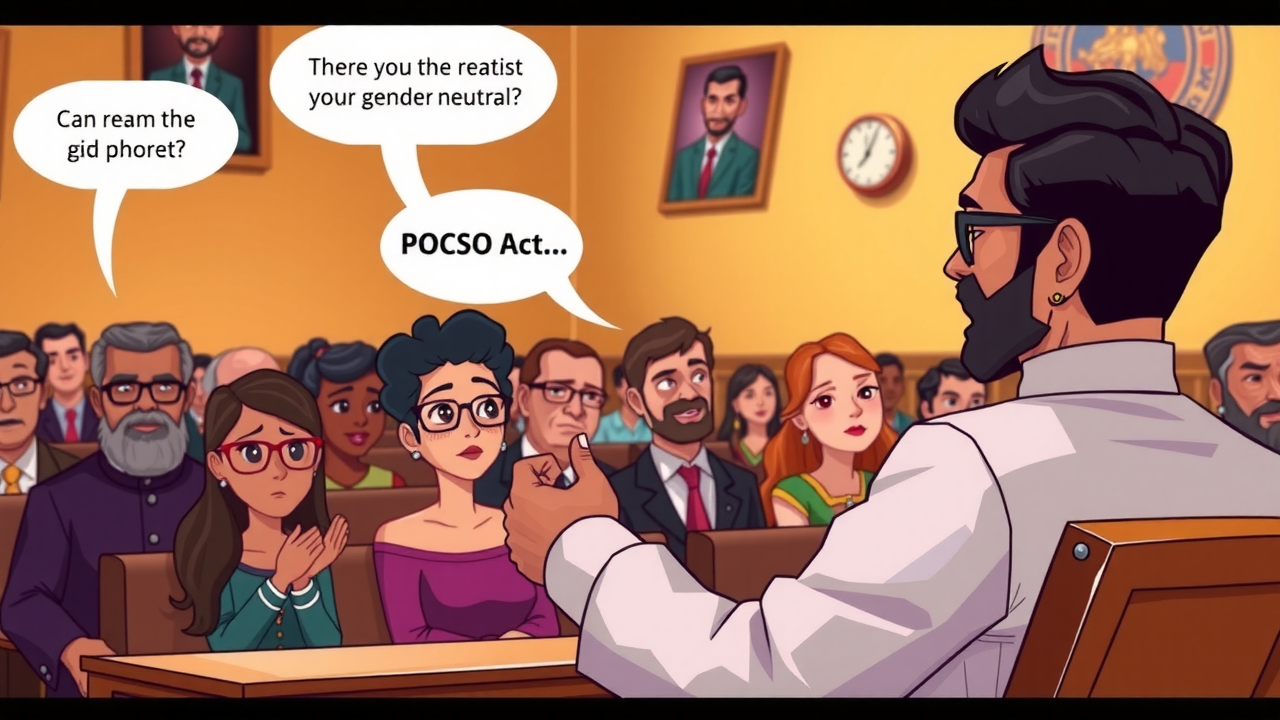The Delhi High Court has ruled that the POCSO Act applies to offenders of all genders, including women. Justice Anup Jairam Bhambhani emphasized that the pronoun “he” in Section 3 of the Act should not be limited to males, ensuring comprehensive protection for children. This judgment dismisses a wom

The Delhi High Court has issued a landmark ruling that expands the interpretation of the Protection of Children from Sexual Offences (POCSO) Act to be gender-neutral, confirming that the offences of penetrative sexual assault and aggravated penetrative sexual assault under this law can be applied to female offenders as well.
Justice Anup Jairam Bhambhani presided over this decision, stating that the pronoun “he” in Section 3 of the POCSO Act should not be understood as exclusively referring to males. Instead, it must include any offender, regardless of their gender, thereby ensuring that the law protects children comprehensively. This ruling has significant implications for how sexual assault laws are interpreted and enforced in India, especially concerning the protection of minors.
Key Rulings and Legal Interpretations:
Gender-Neutral Application of POCSO Act:
- Interpretation of “He”: The court ruled that the pronoun “he” in Section 3 of the POCSO Act should not be narrowly interpreted to mean only males. It should be read as including any individual who commits the offence, irrespective of gender. This broader interpretation ensures that the law applies equally to all offenders, whether male or female.
- Absence of Gender Restriction: The POCSO Act does not explicitly define the pronoun “he,” which the court used as a basis to argue that the law should not be seen as gender-specific. This interpretation aligns with the act’s objective of protecting children from sexual offences, regardless of the perpetrator’s gender.
Aggravated Penetrative Sexual Assault Under Section 5:
- Consequential Definition: The court pointed out that Section 5 of the POCSO Act, which defines aggravated penetrative sexual assault, is directly linked to the definition of penetrative sexual assault in Section 3. Therefore, the gender-neutral interpretation of Section 3 also extends to Section 5.
- Broad Scope of Offence: The court emphasized that the provisions include various acts such as the insertion of objects or body parts and oral applications. It would be illogical to restrict these offences to penetration by a penis alone, thus reinforcing the need for a gender-neutral application.
Distinction from IPC Section 375:
- Comparison with IPC: Justice Bhambhani compared Section 375 of the Indian Penal Code (IPC), which explicitly mentions a “man” as the offender in rape cases, with Sections 3 and 5 of the POCSO Act. While Section 375 limits the offence to male perpetrators, the POCSO Act uses the term “person”, which is inherently gender-neutral.
- Legal Implications: The court clarified that while the scope of Section 375 of the IPC is beyond the current proceedings, the usage of the word “person” in Section 3 of the POCSO Act implies that the law is intended to be inclusive of all genders, ensuring that anyone committing such an offence is held accountable.
Case-Specific Observations:
- Dismissing the Plea: The court dismissed a petition by a woman who challenged the trial court’s decision to frame charges against her under Section 6 of the POCSO Act (which deals with punishment for aggravated penetrative sexual assault). The court found sufficient evidence to put her on trial, emphasizing that the law applies regardless of the offender’s gender.
- Delay in FIR and Medical Opinion: The court addressed concerns about the delay in registering the FIR and a medical opinion suggesting a lack of sexual intent on the part of the accused. It held that these issues are to be examined during the trial, not at the stage of framing charges, and thus do not justify discharging the accused woman at this point.





